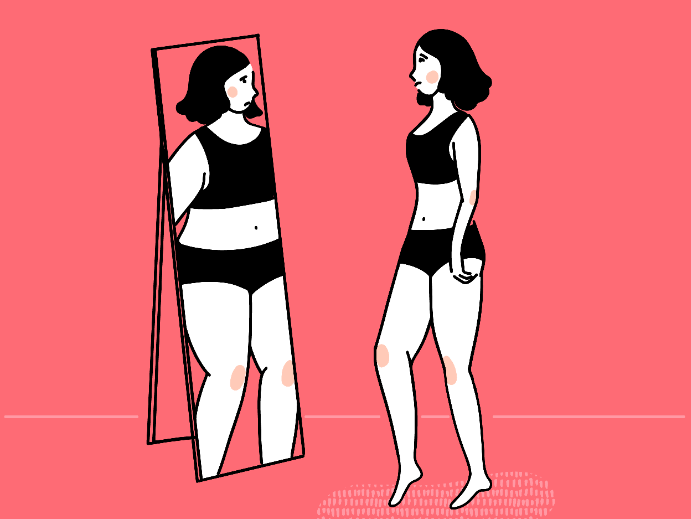Your Body Image: If It’s Not Positive, Is Social Media To Blame?
October 7, 2022
Have you ever looked in the mirror and criticized every aspect of your body?
Eating disorders among teenagers have spiked since 2020, according to the Centers for Disease Control. Eating disorders include anorexia, bulimia, binge eating disorder, avoidant restrictive food intake disorder, etc. Anxiety, depression, trauma, and other mental disorders are among the many causes that are linked to eating disorders.
According to the Social Media Victims Law Center, trying to live up to the unrealistic beauty standards of social media can lead to disordered eating patterns or low self-esteem. Eating disorders among teenage girls are more prevalent, though it doesn’t make teenage boys less susceptible.
Social media plays a huge role in teenagers’ lives; therefore it’s important to limit one’s daily consumption of media since it can contribute to negative body image. News and Medical Life Sciences reports that the more media a person consumes on a daily basis, the more likely they are to struggle with body image, which could lead to an eating disorder.
Students at Santa Fe High have a range of responses on this issue. The majority of them interviewed said they do struggle with their body image and believe social media has played a part in it.
One young woman said, “These unrealistic beauty standards that social media promotes mess with my head a little. I physically cannot look like them due to genetics.” She mentioned, though, that while social media had a part to play in her body image issues, she knows it is not the primary cause for them.
Max Encinas said, “I see models or bodybuilders who can lift more weight than I can, and it does negatively contribute to my body image.” He added, though, that some content he sees from social media pushes him towards his gym goal.
According to the website of Psychology Today, all of us should use more body positive affirmations in our daily lives. For example, if you find yourself thinking, “My body is imperfect,” challenge that negative thought by saying, “I enjoy people who don’t have perfect bodies, and so do other people. If someone doesn’t like me because of my body, their priorities are ridiculous.”
According to research, you should spend the first and last 30 minutes of your day offline. using this time to stretch, journal in a notebook, practice mindfulness, etc. Another thing experts advise is to be conscious of the people you follow on social media and determine whether their messages make you feel good or help you reach a goal. If they do neither, then stop following them.


